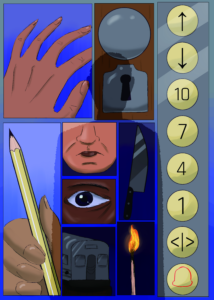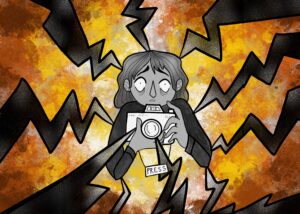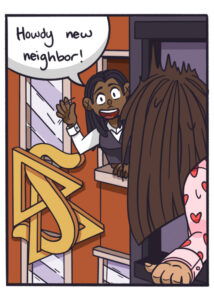When Brandon Johnson became mayor of Chicago last April, I was elated to see that one of his many campaign promises was to reopen six mental health clinics that were closed in 2011.
It was great to see that he’s planning to not only reopen these clinics, but to also establish the Treatment Not Trauma Program.
Treatment Not Trauma is a working group that specializes in shifting attention and addressing the mental health of citizens after a crisis. It consists of trained professionals that will address issues such as mental health, substance use, and homelessness for teens and adults.
Reopening these mental health clinics and creating a program like Treatment Not Trauma is an asset to Chicago, but there needs to be more places like this for teens. A 2024 Youth Mental Health Report revealed the toll taken on the youth demographic from social media, mass violence, school, and other issues that teens face every day.
The question is, “What is being done about this, and how can adults begin to recognize the signs of poor mental health in teens.
As someone who faced mental health struggles in my teen years, I still ask myself, “Why did my struggles go unnoticed?” I think this is a question many ask themselves or will ask in the future.
According to the 2024 Youth Mental Health Report, 42% of all high school students struggle with persistent feelings of sadness and hopelessness. Among female students,
Nearly 6 in 10 reported feeling persistently sad or hopeless, and nearly 7 in 10 LGBTQ+ teens felt the same.
Without the right support, the feeling of hopelessness may make them avoid doing things they usually enjoy and can also cause suicidal thoughts.
Although most parents look out for the general well-being of their teens, many of them miss signs of anxiety, depression, or other forms of mental illness. This could also be an issue if parents have a mental illness themselves that went unnoticed for years.
According to The University of Stanford Medicine article, Major Depression and Genetics – Stanford Medicine, at least 10% of people in the U.S. will experience a major depressive disorder at some point in their lives. A person who has a relative with depression is five times more likely to develop it than others who do not have a relative with depression.
In my experience, families tend to focus a lot on physical health, behavior and grades. Still they don’t realize these things aren’t an accurate depiction of how their teen is doing mentally.
Being someone who has struggled with mental health and seen friends going through the same things, I’ve noticed that many parents don’t take their teens’ mental health seriously. Some think their teens are using it as a crutch.
Nicholas Balaisis wrote in a Psychology Today article that many teens and adults use their mental health as an excuse for everything.
“My bad, mental health made me do it,” mocked Balaisis.
Some people may make bad decisions and use their mental health as a way to get out of trouble, or avoid being held accountable for their actions, but a lot of these people are really struggling, especially teens. The issue is them not knowing how to deal with their mental health, therefore they act out.
If adults are mocking them or aren’t being supportive, it may be expected for them to act out. This is why we need to be more aware of the signs of mental health.
How exactly do we do this?
Parents should start asking teens about their day. Not the usual, “How was school today?” but how they are doing mentally.
Their actions could be an indicator for how they are doing mentally. If your teen stays in their room often, maybe check on them and ask if they want to talk.
More organizations similar to Treatment Not Trauma should be opened. Some teens may not have a safe space at home and could benefit from having other adults to talk to.
Once we begin to recognize signs of poor mental health in teens and advocate for more mental health organizations, we can reduce the risk of them struggling with anxiety, depression, and substance abuse in their adult years.
At the very least, It’s important for them to know that people care about them and there are places they can go to for help.
Amaria Moore is a journalism major from Chicago, Illinois







Be First to Comment